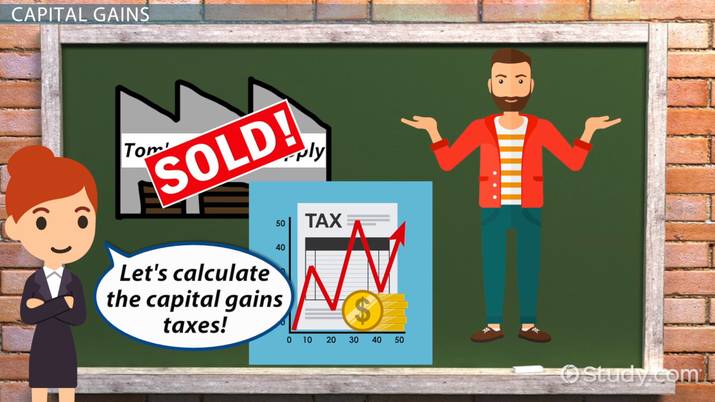- What is Capital Gains Tax?
Capital Gains Tax (CGT) is a tax levied on the capital gain arising from the disposal of a specified asset. Specified asset means
- immovable property (e.g. land and buildings) and
- any marketable security (e.g. debentures, shares, unit trusts, bonds and stock).
With effect from 1 January 2017 the definition of specified assets now includes the following any right or title to tangible or intangible property registered or required to be registered in terms of
i Mines and Minerals Act
ii Patents Act
iii Trade Marks Act
iv Industrial Designs Act
v Copyright and Neighbouring Rights Act
vi Geographical Indications Act
vii Integrated Circuit Layout Designs Act
It should be noted that with effect from 1 January 2014, disposal of property for which the seller does not hold title deeds (cessions) are also liable to Capital Gains Tax.
- Who is liable to pay or remit Capital Gains Tax?
- The seller
- Depositary (A conveyancer, legal practitioner, estate agent, building society, Sheriff or Master of the High Court, stockbroker or financial institution)
With effect from 1 January 2017, the definition of depository now includes the registrars or other registering officials responsible for registering rights, titles, transfers, or amendments in any of the Acts mentioned above. These officials are now required to withhold capital gains withholding tax where they hold any monies in respect of the disposals.
- What are the rates of Capital Gains Tax?
- Where the specified asset being disposed of or sold was acquired after the 1stof February 2009, Capital Gains Tax is chargeable at the rate of 20% of the capital gain.
- Where the specified asset being disposed of or sold was acquired before 1stFebruary 2009, Capital Gains Tax is chargeable at the rate of 5% of the gross capital amount realized from the sale.
These rates will also apply on the disposal of additional assets stated in item 1 above.
- Disposals Where Capital Gains is not payable
- Transfers of any specified assets between spouses.
- Transfer of principal private residence between former spouses in pursuit of a divorce order
- Transfer or disposal of a specified asset by a deceased estate
- Transfer or disposal of a principal private residence by an individual who is of or above the age of 55 as at date of sale or transfer.
- Disposal of a principal private residence by an individual where all the sale proceeds are used to acquire/construct a new principal private residence.
- Transfer of business property used for the purposes of trade by an individual to a company under his/her control where such company will continue to use the property for the purposes of trade.
- Donation of housing units to a local authority, approved employee share ownership trust or community share ownership trust or scheme.
- Valuation of Assets for Capital Gains Tax Purposes
Ordinarily the practice is to accept values of properties as declared by clients for Capital Gains Tax purposes. However, in certain circumstances, if in the opinion of the Commissioner, the value declared falls short of and is outside of fair or open market values for similar properties, then the Commissioner may invoke his power under Section 14 of the Capital Gains Tax Act to either uplift the value or call for a valuation report from a property valuer registered with the Valuers Council of Zimbabwe. Such circumstances may include, but are not limited to:
- Sale or transfer of property between related parties where the relationship affects the agreed price of the property.
- Deliberately under-declaring value of a property in order to evade payment of full Capital Gains Tax.
- Sale of a property in settlement of a debt by private treaty where the seller may deliberately under-declare the value of the property to “free” funds to cover a debt.
Capital Gains Tax bills can be reduced by deducting the following costs from the final sale price:
- Agent’s commission
- Transfer fees originally paid in the purchase of the property
- Any costs incurred in the improvement of the property, provided such improvements have tax invoices which state the owner’s name and the words “Tax Invoice” on them. Whenever one does any improvements to their home a careful record must be maintained with all necessary costs carefully accounted for and all tax invoices must be in the format as described above. Failing this, these costs will not be permitted as deductions. ZIMRA is very strict about this.
- If a seller is purchasing a new property with the proceeds from the sale of his house, then he can apply for a “roll over”. This means that the seller is deferring the payment of the taxes due until the sale of the new property. It is important for the sale of the old house and purchase of the new house to be lodged at the same time with ZIMRA so that they can easily see that the transaction qualifies for a rollover. In theory, one has up to two years to purchase a new property with the proceeds of the sale to qualify for this roll over of tax. But, if one does take up to two years to buy a new property, the seller must pay ZIMRA the property tax or capital gains tax due on the sale of his property and then claim a refund of the tax paid when the new property is purchased. This is not ideal, as the tax paid over to ZIMRA is tied up with them and cannot be used to purchase the new property. If however, one manages to do a “back to back” sale, no money is paid to ZIMRA and therefore the tax which would have been paid can be used for the purchase of the property or any other costs involved, such as transfer fees.
Please note there is a disclaimer to the rollover: the new property must cost more than the old one in order to get a 100% rollover. If the new property is cheaper, then the seller will pay tax on the difference of the two properties’ prices.
- Application for Capital Gains Tax Clearance Certificate.
Both the buyer and seller, or their authorized representatives will be required for separate interviews with ZIMRA as part of the process towards assessment of the Capital Gains Tax due or conclusion of the transaction whether or not Capital Gains Tax is payable.
- a) For Disposal of Property (Land or Building) Under Cession
For the Capital Gains Tax Certificate to be processed you are required to produce, depending on circumstances of the sale, some or all of the following documents:
- Cession letter or Letter from Council (authorizing disposal)
- Cession Agreement
- Letter of undertaking by conveyancer (where purchase amount is held in trust)
- Certified copies of national identity cards for both the seller and the buyer
- Proof of payment in the form of a bank statement for the seller showing the deposited amount for the property disposed.
- Completed ZIMRA registration form (REV1)
- Capital Gains Tax return (CGT1)
- Valuation Report for the property (in the case of commercial property or on request by ZIMRA)
- b) For Disposal of Property with Deeds
The following documents are required for processing of a Capital Gains Tax clearance certificate.
- Fully completed Capital Gains Tax form (CGT1)
- Completed ZIMRA registration form (REV1)
- Agreement of sale (copy & original)
- Deed of transfer/share certificate (copy & original)
- Copy of proof of payment
- National identification for the seller and the buyer (copy & original)
- Copies of two different utility bills if seller is claiming rollover/exemption
- Power of attorney sealed by notary public if the buyer/seller is out of the country and is being represented (copy & original)
A Capital Gains Tax clearance certificate will be issued once any amounts due have been paid and the transaction has been finalized by ZIMRA. This clearance certificate will be used to facilitate the transfer of the property to the new owner.
[contact-form][contact-field label=’Name’ type=’name’ required=’1’/][contact-field label=’Email’ type=’email’ required=’1’/][contact-field label=’Contact Number’ type=’text’/][contact-field label=’Website’ type=’url’/][contact-field label=’Comment’ type=’textarea’ required=’1’/][/contact-form]

